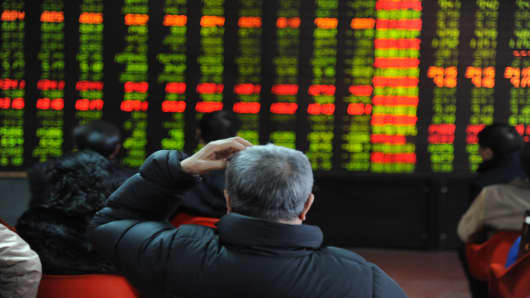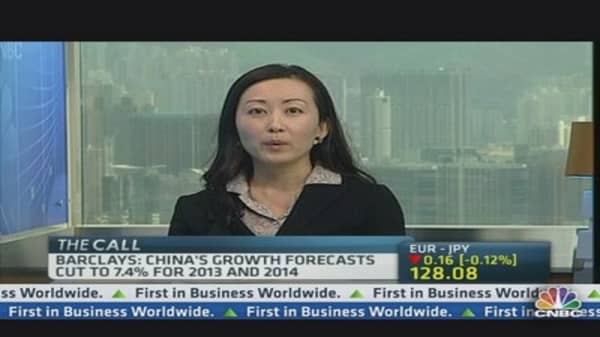Chinese shares, the worst performers in Asia this year, sank to multi-month lows on Thursday as fears of a slowdown in the world's second-largest economy were exacerbated by further weakness in its vast manufacturing sector.
The benchmark Hang Seng Index closed down 2.9 percent at a nine-month low, while the Shanghai Composite ended down 2.8 percent at a six-month low, leading losses across the region.
The sell-off in Chinese equities was triggered by HSBC's flash Purchasing Managers' Index (PMI), an early indicator of Chinese factory activity, falling to a nine-month low of 48.3 in June - moving further into contraction territory away from the 50 mark, which signals expansion.
(Read More: China PMI Slump Will Test Authorities' Resolve )
Slowing growth in China will lead to lower company earnings, according to HSBC, which downgraded its Chinese stock indexes' targets by 8 to 19 percent for 2013 on Thursday.
"Our economists' new forecasts suggest Chinese GDP (gross domestic product) growth could be below 7.5 percent in both 2013 and 2014. Historically, this level has not boded well for Chinese companies' earnings growth," HSBC said in a note on Thursday.
The bank has revised its target for the Hang Seng Index lower by over 8 percent to 22,000 for 2013, while it now expects the Shanghai Composite to rise only 10 percent higher from current levels, compared to a predicted 20 percent jump earlier.
"We believe 2013-14 consensus earnings estimates are at risk of further downward revisions, particularly for banks and cyclicals," HSBC added.
James Gruber, author of "Asia Confidential" backed that sentiment, saying that given evidence that the Chinese economy is clearly slowing and its credit bubble is "bursting," it will take time before the market benefits from any government reforms.
"Any reforms though will take time and aren't likely to mitigate the slowdown from the credit bubble," Gruber, a former CLSA analyst, said. "I think investors should underweight China and stay in defensive sectors such as telcos and consumer staples."




